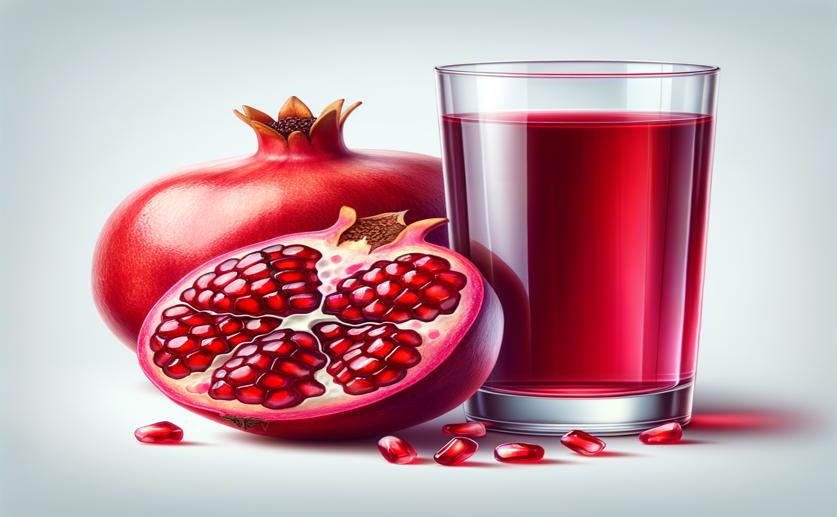
Pomegranate Juice and Its Impact on Inflammation Markers
Greg Howard
2nd April, 2024

Image Source: Natural Science News, 2024
Key Findings
- Study at Mashhad University found pomegranate juice lowers inflammation marker CRP
- The juice's effect was notable in women, older adults, diabetics, and those with PCOS
- Optimal dose and duration for anti-inflammatory benefits are still unknown
References
Main Study
1) The effect of pomegranate juice supplementation on C-reactive protein levels: GRADE-assessed systematic review and dose-response updated meta-analysis of data from randomized controlled trials.
Published 30th March, 2024
https://doi.org/10.1002/ptr.8188
Related Studies
2) The effect of concentrated pomegranate juice on biomarkers of inflammation, oxidative stress, and sex hormones in overweight and obese women with polycystic ovary syndrome: A randomized controlled trial.
3) Obesity: the preventive role of the pomegranate (Punica granatum).
4) Clinical evaluation of blood pressure lowering, endothelial function improving, hypolipidemic and anti-inflammatory effects of pomegranate juice in hypertensive subjects.
5) It's time to redefine inflammation.



 16th January, 2024 | David Palenski
16th January, 2024 | David Palenski